 Did you feel like nursing at night in the hospital was harder than during the day? If you did, there are probably some good reasons for that, and they’re not all about your biology.
Did you feel like nursing at night in the hospital was harder than during the day? If you did, there are probably some good reasons for that, and they’re not all about your biology.
Of course, the mismatch between your baby’s circadian rhythms and yours can make night feedings tough in the early days. Newborns are more wakeful and often feed a lot at night, and of course that’s when you’re expecting to get some rest after your birth. So the best time for your baby to work on breastfeeding may feel like your worst time.
But it’s also possible that the way hospitals are organized exacerbates the problem. It’s not insignificant, as one study found, that during the hospital stay “the highest risk time of day for an infant to receive a supplement is between 7 PM and 9 AM.”
Here are some reasons why hospital routines and staffing may make night feedings harder:
Lactation consultants are generally not available at night. While learning to breastfeed is a 24/7 job, lactation consultants generally work day shifts. So if you have a breastfeeding problem at 2:00 am, you may end up waiting for quite a while to see one.
Night nurses may not have had the same training opportunities. Night nurses are heroes, of course. They need to be as alert and ready to go as any day time nurse, through the night. It’s a hard job which can involve physical and psychological sacrifices.
But night nurses may miss out on professional development on breastfeeding, which often occurs during the day. And they don’t benefit from the collaboration and learning opportunities that occur with a lactation consultant on shift.
Night nurses can feel - and be - marginalized. Abbott Nutrition, maker of the Similac formula, know this dynamic well, and it’s the basis for their Night Nurse Nation website, which markets formula and supplementation to night nurses in a collegial (“we know you deserve a break”) manner, and provides some questionable breastfeeding information. For more on this, see Amy West’s blog post: Similac: Fox in the Nurse’s Hen House
“You seem so tired. Why don’t I take her to the nursery so you can sleep?”
In one study, “maternal fatigue” was cited as a key reason nurses reported for babies being supplemented. Some of this comes from moms, certainly, but some results from well intentioned statements like the one above. Suggesting to an exhausted mom that she might be able to get some rest by any means at all isn’t really playing fair. And unless your hospital has a strict no-supplementation-without-maternal-consent policy, or you know in advance to give strict instructions not to supplement, sending your baby to the nursery may mean that she comes back to you with a new experience under her belt.
Constant interruptions during the day may make nighttime the only time to work on breastfeeding. As I’ve written before, most hospital rooms are Grand Central Station, with an average of 54 interruptions in the daytime hours. This means that we have precious little time to really focus on breastfeeding during the day, and by the time we have the chance we’re exhausted. Add in a cluster feeding and a latch problem, and you have a nighttime train wreck.
So if you feel like night time feedings in the hospital were harder than day time feedings, you probably weren’t imagining it, and it doesn’t have to be this way.
Did you have a tough time with night feedings in the hospital? Did you get good help from night nurses? How did it affect your breastfeeding experience?



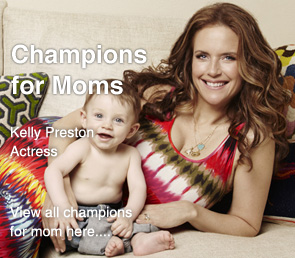


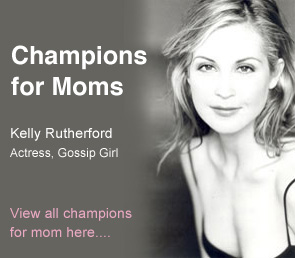
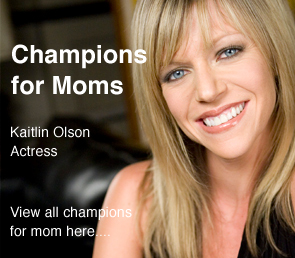
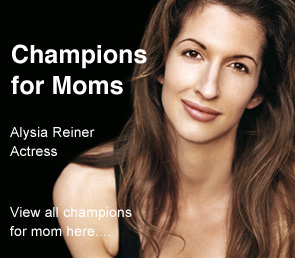
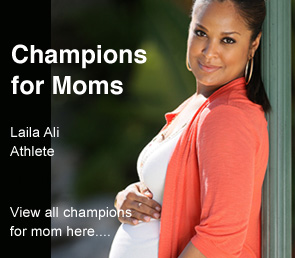
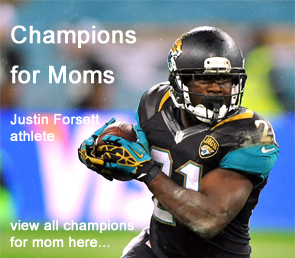
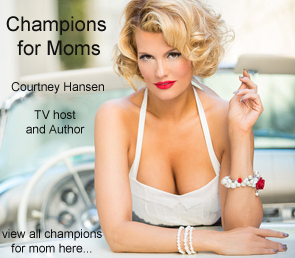



Love the website. Keep up the good work. I’m an L&D night nurse and wanted to throw in my two cents. I first want to say that I am very pro-breastfeeding and discourage supplementation, especially for the first month of life because of immunologic reasons primarily. I do agree that breastfeeding in the hospital is more challenging at night, but I have a different take on it than this article. In my experience “maternal fatigue” IS a big reason that babies get supplemented at night. New moms, often after 24-48 hours of laboring with no or little sleep, bring these precious little things into the world and then, understandably, don’t want to or can’t sleep because of adrenaline, anxiety, family and visitors constantly trickling in and out, not wanting the babies to leave their arms, pain, nursing care, and a hundred other reasons. So by the time it’s midnight, Mom is in DESPERATE need of sleep! It becomes an issue of her and the infants safety, her recovery, and physical and mental health. And yes, sometimes when patients are vulnerable, nurses do and should “strongly suggest” different options such as taking the infant to the nursery, were they are likely to be supplemented. So how do we change this? The reform needs to happen at the beginning of this process, not the end when the night nurses are doing “damage control”. Maternity wards need to be places of rest and recovery just like the rest of the hospital. 1.)New parents need to place the highest priorities on their recovery and breastfeeding and learning how to care for their new babies. 2.)Visitors need to be limited if not eliminated for at least the first 48 hours after birth. 3.)Co-sleeping needs to be further studied and the benefits and risks better understood, and IF the practice is supported, Moms need wider beds because co-sleeping in these narrow hospital beds is in itself dangerous. 4.)Pain management needs to be aggressive. 5.)A nurse can’t be in the room her whole shift and new moms need lots of help. Ideally a postpartum doula will be present so that Dad (or whomever) can get rest too because he needs self care as well. 6.)Breastfeeding class and practice BEFORE the birth of your child! We don’t try to learn calculous or initiate potty training with our two year old at 2 a.m., so why is it so many new Moms wait until the visitors are gone and all is quiet at the wee hours of the morning to get serious about learning breastfeeding? New parents and nurses need to be proactive. Setting limits and boundaries to promote self and infant care. If patients speak up, hospitals WILL listen. It’s a business, and they want happy customers. I will admit night nurses often get the short end of the stick and miss out on many daytime activities and benefits, but we ARE well trained. We may be going to our in-services on little sleep or in the middle of “our night”, ie your afternoon, but the training is there and good nurses make it a priority. This is a team effort though, patients included. So maybe rather than faulting hospitals or night nurses, let’s write an article on what new parents can do to make breastfeeding successful and not get to the point were they are begging the night nurse to take the infant to the nursery or the nurse is feeling pressured to do it because of safety and medical concerns. Women have more control, strength and ability that we often realize. Education and using our voices is the key.
AMEN!! From a fellow post-partum night nurse and IBCLC!!
Nurse Jenn. I think you are very right! I think it mostly depends on where you work as well. The nurses at a hospital in South Texas were not trained nor educated on breastfeeding. No one, not ONE nurse, knew anything about breastfeeding. BUT the breastfeeding rates are really low for that area so that maybe the reason for the lack of training.
As for my story. I delivered my son at Women’s Renaissance hospital in Edinburg, Texas. I went in labor spontaneously at 39 weeks and 4 days. I was progressing steadily and already a 5 by the time I got in my delivery room. The hospital procedure was a bag of pitocin. I gave birth to my son and he had to go to the nursery right after birth because they thought he had fluid in his lungs. I held him for five minutes but they wouldn’t let me breastfeed. Then 5 hours later they brought him to my room screaming. He was so mad, I couldn’t get him to latch for more than 2 seconds, then he would cry more. I didn’t understand it. By the time I got him calmed down another visitor would be coming in the room. I was too nervous in front of everyone to try breastfeeding a baby that keep coming unlatched. I did eventually get over it when I realized no one was leaving and he had to be fed. Then the pediatric nurse kept calling every hour to see if he had a wet diaper yet. I told her no. She kept calling. Every hour. After 9 hours of him being in this world she told me in a very concerned way “I strongly suggest you supplement.” I told her no, he didn’t need it. He was perfectly healthy, his blood sugar was fine. They even came in at 15 hours to check his blood sugar even though he was born 7lbs. 9 oz. with perfect blood sugar. That night he was latched for 3 hours and it FREAKED me out. I was rationalizing in my brain that he must not be getting anything if he’s latched for 3 hours. I ask if they had a pump or anything. They said they didn’t. I told her for the nicu mommas they have one if I could use it. It’s a cheap little plastic manual one. I pumped and pumped, I didn’t get anything. I was like he starving. He’s screaming. He’s been screaming. I have not slept since he’s been born. I am being pressured to supplement him. I asked for help from the nurses about breastfeeding and not one of them could help me. They had no idea how to do it or what was normal or anything. They would go off a formula fed baby. “Did you feed him yet, it’s been 3 hours.” “He needs a wet diaper!” “You have to keep them on a schedule” “Have you started supplementing yet?” To get him to latch they tried putting a bottle of formula in his mouth. I kept trying to get him to latch and I would force my breast on him praying he would have a wet diaper and they would leave me alone. Thinking I had to keep him on a schedule, he HAD to eat for 30 minutes on each breast to be truly satisfied. I think he developed nipple aversion from it. For three months after I left the hospital, he was like that. Only nursing if I was swinging him while walking. It was so hard to get him to eat. I stopped pressuring him to take it and became more relaxed. It was something we had to work through. Even the peer counselor at the WIC office didn’t know what she was doing. I taught everyone in that office how to feed an infant from a spoon. Omg. What a nightmare. That is why I do what I do. So no woman has to go through that. Sorry if I’m rambling. I’m breastfeeding my second right now, which was a WAY better experience. The staff here at Methodist hospital in Sugarland, Texas were way more informed.
I am also an l&d night nurse and agree completely! Especially in regards to prenatal education!
Nurse Jenn,
I’m really glad to hear your perspective as a night nurse! As I said, I think you are the heroines of postpartum care.
I think that we agree on several points. I included a link to my post on the postpartum room as “Grand Central Station” because the evidence does show that constant interruptions (not just by visitors but by hospital staff) make it hard for mothers to work on breastfeeding during the day. And of course prenatal education is important.
But I want to explore what you wrote about maternal fatigue. Mothers will be tired at night, no matter what we do. They’ve just had a baby, and their bodies are used to sleeping at night (unless they’ve been working the night shift!). So even if we made it easier by reducing interruptions and encouraging napping during the day, most mothers are still going to feel tired at night.
You wrote that “sometimes when patients are vulnerable, nurses do and should ‘strongly suggest’ different options such as taking the infant to the nursery, where they are likely to be supplemented.”
First, as you know, rooming-in is known to increase breastfeeding success, which is why it’s one of the Ten Steps to Successful Breastfeeding. Some hospitals such as Boston Medical Center (Baby Friendly) simply don’t have nursery care for healthy babies (see our post on “Breasts don’t stretch down hallways…”). If some hospitals can do it, why more hospitals adopt the policy of full rooming-in (even when moms are tired)? Why should nurses “strongly suggest” nursery care when we know that rooming-in promotes breastfeeding?
Second, why are babies “likely to be supplemented” in the nursery? If a hospital does allow healthy babies to be sent to the nursery, why should that necessarily mean supplementation? Why not have a policy as some hospitals do, that breastfed babies are simply not supplemented in the nursery, and that when wakeful they’re brought back to the mother’s room for feedings (without mothers having to request this)? I continue to hear from distraught mothers who say that, had they known that sending the baby to the nursery would mean supplementation, they never would have done it.
The responsibility is shared. Of course mothers need to be informed and vote with our feet. But we also should be able to trust that when we tell our providers that we want to breastfeed, they will follow policies that will promote our success.
My baby was in the NICU for the first 3 days and nighttime feedings weren’t particularly harder other than more difficulty latching for some reason. But once we were rooming together in pediatrics nighttime was more rough. I can’t exactly blame the nurse since she was just following orders, but the first night there she was essentially force feeding my baby supplemental milk (pumped) because she “had” to take an extra 20mLs even though she was breastfeeding well. That was frustrating to me and did make feeding that night extremely stressful. Thankfully I was able to get the orders changed to breastfeed on demand the next day and the rest of our stay it went well. We continued to have latching troubles at night only for the first couple weeks, but I don’t think that had much to do with the hospital or staff.
Here’s my story: when I went into the hospital when my nephew was born, I remember a certain bustling, bossy nurse coming in while I was there and I found her tone condescending (to the mother). I thought, “This is just a little part of why I don’t want to have my babies in a hospital.” One year later, my dreams of a perfect home birth went awry and I ended up transferring to the same hospital to have my own baby.
It was a mixed experienced, but in the middle of the night, my midwife had left, my mother was gone, my husband was asleep-exhausted by the two days and nights he’d supported me through labor, I was alone in a dark room with my hungry baby and ready to pass out from exhaustion. I wasn’t going to let my baby leave my sight, and there was no nursery for healthy babies in that hospital anyway. I rang the bell and the night nurse came in. She was the same “bossy” nurse my sister-in-law had! She SHOWED me how to side-lie nurse, and ENCOURAGED me to co-sleep saying, “Only parents drinking and on drugs roll over on their babies.” She was my angel. Later I realized who she was and how I had misjudged her and even the whole experience. How many millions of times have I nursed lying down since then? Anyway, I was very blessed, ate some humble pie, and had a wonderful nursing experience (my two children have never had to receive a drop of formula).
I think that maternal exhaustion would be much less of an issue if hospital beds were designed for safe cosleeping, instead of being made for sleeping “sick” adults. After all, that’s why most people are in the hospital, right?
Cosleeping and breastfeeding go together, I don’t think there’s any way around it. At least, I can’t see one. In some ways, that’s the beauty of night nursing, you can sleep and feed if all is going well! If hospitals just put the beds on the floor and had carpeted rooms perhaps, there would be no need to offer to give Mom a break, because she can sleep right with baby in a safe spot.
This article is EXACTLY what happened to me during my first birth. I was exhausted after a 3 day labor, and I hadn’t slept in 4 nights. My nurse suggested formula so I could sleep. Guess what? Things got way out of control and I ended up quitting breast feeding at 2 weeks.
This time, with my second baby, I was determined not to give birth in a hospital as long as it was medically possible. I went to a birth center and really worked on my own fears and confidence in standing up for myself with health care providers. I hired a private IBCLC to come to my home for a pre-natal class on nursing.
My second has never had a bottle, she is 8 months old next week.